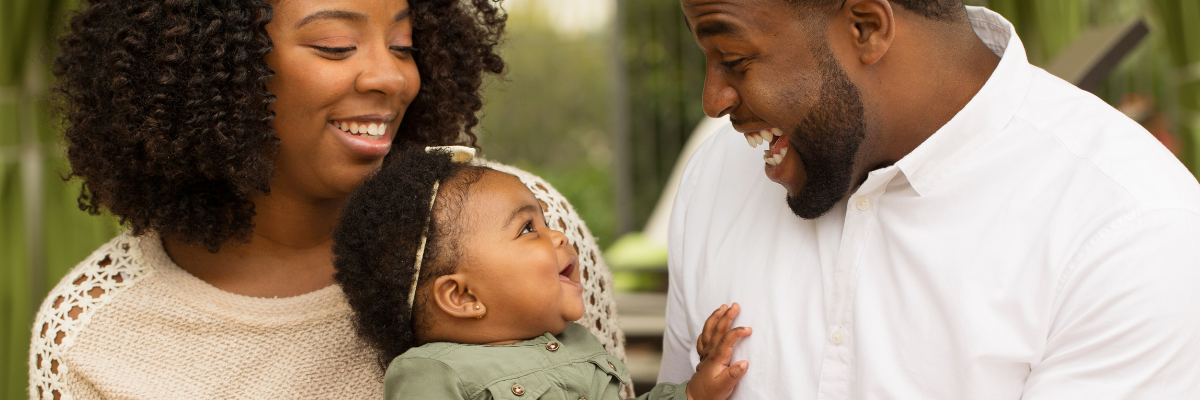What can I expect before my baby begins talking?
Your baby’s first form of communication will be nonverbal and happens soon after birth. Your may baby grimace, cry, or squirm to express a range of emotions and physical needs, from fear and hunger to frustration and sensory overload. Oftentimes, parents learn to listen and interpret their baby’s different cries, coos and babbles. Many parents wonder when their baby will begin using words, imitate them, laugh and form a variety of other communication methods to express how they are feeling. A very important part of language development is the prelinguistic stage, which is the stage that is characterized by vocalizations before language begins. So for starters, what is language? How does it develop during a baby’s first year of life?
Language is when we use and organize sounds and words to convey meaning. Language development is considered a continuum, and there is not an abrupt shift from babbling to talking. There is an overlap between all stages of language development. Every child is different in the way they learn and grow; however there are many exciting milestones to watch for as your baby explores their environment in the first few months of life. Continue reading to learn more about the prelinguistic stage, how you can interact with your child during this stage, and how Carolina Therapy Connection can help your child reach their full potential!
What can I expect from my baby during the prelinguistic vocalizations stage?

1: Reflexive and Vegetative
- Occurs birth – 2 months
- Reflexive sounds (crying, coughs, burps)
- Cries that mean different things (hunger, pain, etc.)
2: Cooing and Laughter
- Occurs 2 – 4 months
- Vowel like sounds
- Squeals
3: Vocal Play
- Occurs 4 – 6 months
- Longer vowel like sounds
- Some consonant sounds
- Changes in pitch and loudness
4: Canonical Babbling
This stage is when babies may start to imitate what they hear! This is a fun time to sit and play with your babies and babble to them and see if they imitate!
- Occurs around 6 months – until first words
- Reduplicated or strings of identical syllables: “mamamama” “babababa”
- Variegated or strings of varying consonants and vowels: “madagama”
5: Jargon
During this stage, it will seem like your baby is trying to tell you a story. They may look at you and make facial expressions and use hand movements. This is a fun time to encourage them and engage with them in conversation. Check out this awesome resource from Reading Rockets for Tips and Activities to Encourage Speech & Language Development!
- Occurs around 10 months or older
- This stage overlaps with first words
- Strings of babbling
- Paired with eye contact, gestures, and adult like intonation
Why does the prelinguistic stage matter?
Research indicates that babbling correlates to later language development. Greater babbling complexity and a variety of sounds used positively indicate greater language growth. Delayed babbling may be an indicator for speech/language delays. If you notice that your child is not babbling by 10 months of age, it may be beneficial to consult with a Speech Language Pathologist. While this is not the only factor, it can be helpful when looking at your child’s overall development.
How can Carolina Therapy Connection help?
There is so much new information and research these days that can be overwhelming for a parent. At Carolina Therapy Connection, our team of pediatric speech therapists are licensed professionals who are trained to help children with any communication difficulties. We know that developing strong communication skills is one of the most important elements to socializing and creating relationships.
Our knowledgable and experienced team of SLP’s provide screenings, assessments, consultations, and treatment to children birth through 21 years old. If you have any questions about your child’s development or would like to set up a FREE screening with one of our speech language pathologists to determine the need for an evaluation, call our clinic at 252-341-9944 to speak with one of our staff members.
Meet the Author



